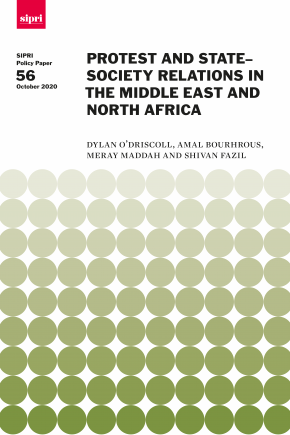Protest and State–Society Relations in the Middle East and North Africa

Nearly a decade after the Arab Spring, the substantial political change that many across the Middle East and North Africa (MENA) have hoped for has yet to be seen. In fact, as the 2019 wave of protests shows, street protests continue to endure in the region, often over the same recurring issues.
This paper takes a regional approach to understanding the state of the social contract in MENA countries. It describes, country-by-country, the impact of protest movements, or their absence, on relations between society and the state, and the likely effect of the COVID-19 pandemic on those relations. It then examines the roles and impact of external actors, and the attitudes that they have adopted towards protests.
Based on this analysis, the authors recommend that the European Union (EU) adopts a new approach to regional security and stability that takes the needs of the populations as the starting point. This would involve a broader EU agreement on priorities in MENA that emphasize aspects that answer those needs.
1. Introduction
2. State–society relations in the Middle East and North Africa
3. Trends and patterns
4. The role and impact of external actors
5. Conclusions



